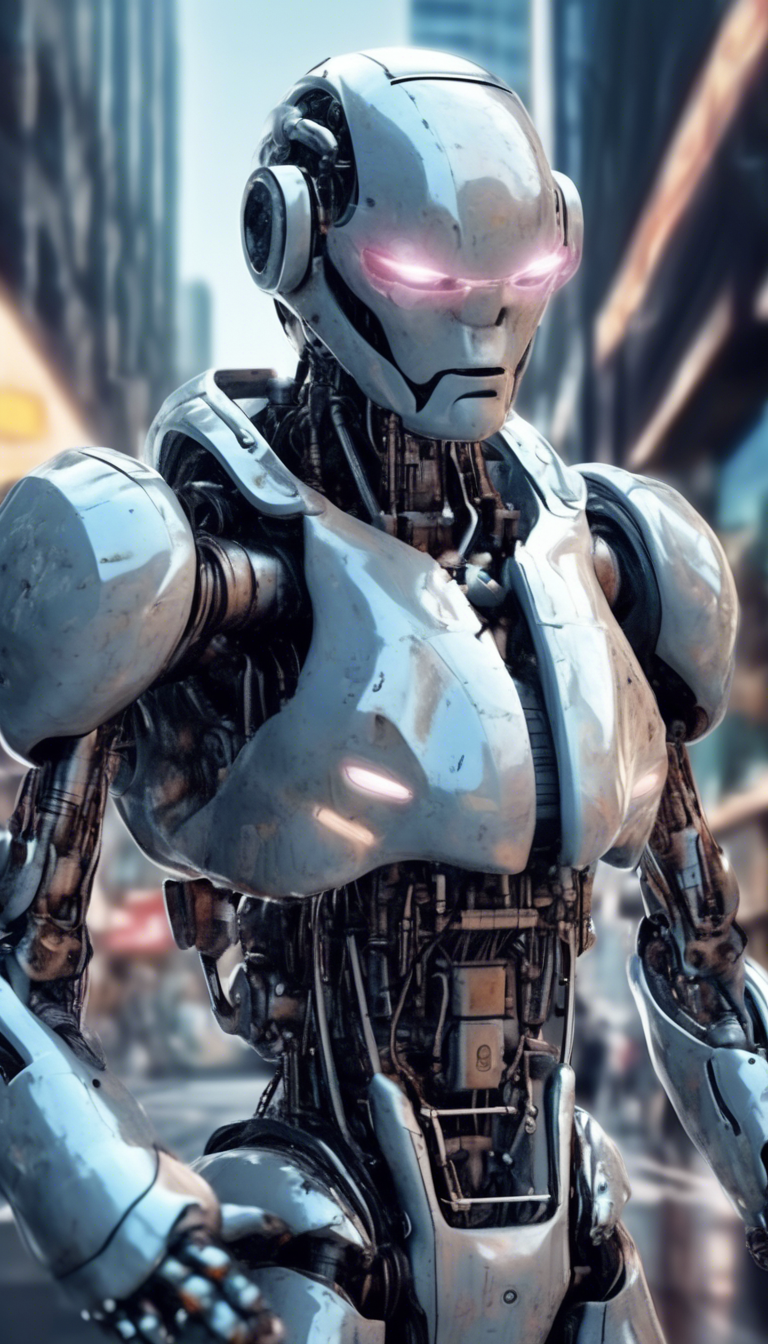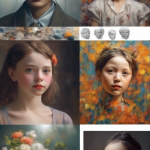The Evolution of AI in Film: How “AI Movies” Are Shaping Storytelling
The world of film is in the midst of a digital revolution, largely fueled by advancements in artificial intelligence (AI). The emergence of AI in the film industry has not only transformed production processes but has also redefined storytelling itself. As more filmmakers incorporate AI technologies into their projects, the genre of “AI movies” is rapidly gaining traction, captivating audiences and influencing creative direction.
One of the key benefits of AI in film is its ability to analyze vast amounts of data. By sifting through audience preferences, cultural trends, and historical data, AI can help filmmakers make informed decisions about plot development, character arcs, and even casting. This data-driven approach leads to more tailored and engaging narratives, ultimately appealing to wider audiences. For instance, studios can analyze the success of past films with similar themes or styles and adjust their scripts accordingly.
Moreover, the rise of AI technology in the animation sector deserves attention. AI-driven tools allow animators to streamline their work, automating repetitive tasks while still maintaining creative control. This not only expedites the production process but also opens up possibilities for more innovative and intricate styles of storytelling. By harnessing AI, studios are beginning to explore visual aesthetics that blend the limitations of traditional animation with the expansive possibilities offered by technology.
Here are a few significant ways AI is reshaping storytelling in film:
- Script Writing: AI algorithms can generate script drafts based on established patterns from successful films. This technology isn’t about replacing writers; instead, it offers them new ideas and fresh perspectives to enrich their storytelling.
- Character Development: AI can analyze audience reactions to different character types and suggest character traits that resonate well with viewers. This insight can help create relatable and complex characters that audiences connect with emotionally.
- Personalized Viewing Experiences: AI enables platforms to create personalized recommendations. This trend is influencing filmmakers to consider how their films can engage with various audience segments, leading to more tailored narratives.
- Editing Efficiency: In the editing room, AI can assist in sorting and identifying the best takes, enhancing the efficiency of selecting footage. It can predict which edits may resonate better based on previous viewer engagement data.
- Interactive Storytelling: AI technology supports interactive films where the audience can influence the direction of the story. These innovations lead to a more immersive experience that connects viewers on a personal level.
However, despite the promising advancements AI offers, there are concerns about the implications for creativity and originality. As films become increasingly influenced by data analytics, there’s a risk that storytelling might lean towards formulaic narratives that prioritize profit over artistry. Filmmakers must find a balance between leveraging AI insights and preserving the creative spark that connects deeply with audiences.
As AI becomes ingrained in the filmmaking process, there’s an ever-present question regarding its role in creativity. Filmmakers are beginning to experiment with blending human emotion and AI-driven narratives, resulting in thought-provoking stories that challenge traditional norms. Movies like “Ex Machina” and “Blade Runner 2049” delve into the moral and ethical implications of AI, while also showcasing imaginative storytelling that pushes boundaries.
Furthermore, as audiences grow more accustomed to films featuring AI technology, their expectations shift. They seek movies that tackle complex themes surrounding the human experience as it relates to technology. Filmmakers are rising to this challenge, creating rich narratives that explore love, fear, and conflict in a world increasingly dominated by machines.
This evolution of AI in film is destined to continue, forging new paths in storytelling and audience engagement. From concept to completion, AI movies are broadening our perspectives and reshaping the narrative landscape. As creators innovate and audiences adapt, the collaborative potential between human ingenuity and artificial intelligence promises to deliver captivating stories that reflect our ever-changing society.
As filmmakers embrace AI technologies, the landscape of storytelling within the film industry is undergoing significant transformation. AI movies represent a novel fusion of technology and creativity, where data and human emotion intersect to captivate audiences in exciting new ways. The journey of AI in film is only beginning, and its impact will undoubtedly shape the future of storytelling.
Ethical Implications of AI Representation in Cinema
The integration of artificial intelligence (AI) in cinema has radically transformed the way stories are told and characters are portrayed. As AI technology advances, filmmakers increasingly harness its capabilities. However, this powerful tool brings forth significant ethical implications concerning representation that can’t be overlooked.
AI-generated characters and narratives can introduce layers of complexity to storytelling, yet they also raise questions about authenticity and originality. When filmmakers rely on AI to create characters—be they human-like avatars or entirely digital beings—the essence of human experience may be unintentionally sidelined. The risk lies in creating characters that lack depth and emotional resonance, reducing multifaceted personalities to mere algorithms.
Moreover, the representation of marginalized groups through AI technologies can perpetuate stereotypes. If a predominantly homogenous team designs AI systems, the risk of biased portrayals increases. It’s crucial to ensure diverse perspectives in the creation process to accurately reflect society’s richness. Here are some considerations:
- Bias in Data: AI learns from existing data. If that data is biased, the AI’s portrayal of characters will likely mirror those biases, potentially leading to the reinforcement of stereotypes.
- Lack of Authenticity: When AI-generated characters replace human actors, the authenticity of cultural nuances may be compromised. This disconnection can lead to misrepresentation, especially in stories that are culturally sensitive.
- Impact on Employment: As AI takes a more prominent role in the film industry, there’s a valid concern about job displacement. This raises questions about the future of acting and whether AI can genuinely replicate the emotional depth that human actors provide.
- Intellectual Property Issues: The creation of AI-generated content opens up discussions on ownership. Who should receive credit for characters or stories generated by AI— the technology developers or the artists who inspired the creations?
As filmmakers explore the advantages of AI in animation, screenwriting, and special effects, it’s essential to remain vigilant about the moral implications involved. The characters brought to life by AI should resonate with audiences on a personal level while respecting the values of representation. The challenge is to create compelling narratives that reflect a real-world diversity of experience.
Younger audiences, for example, have a heightened awareness of representation. They’re more likely to question why certain characters exist and who gets to tell these stories. This societal shift demands that filmmakers adopt a responsible approach when utilizing AI technologies. Collaboration with sociologists, ethicists, and cultural experts can enhance the understanding of how AI influences character development and narrative structure.
Furthermore, the ethical responsibilities of filmmakers extend beyond the screen. They can take an active role in shaping public dialogue around AI representation. Establishing transparent practices about how AI is used in storytelling can foster trust with audiences. This includes being open about the algorithms, data sources, and methodologies involved in creating AI-generated characters.
Another key aspect to consider is user interaction. As interactive storytelling becomes increasingly popular, the role of AI in shaping individual experiences complicates ethical considerations. Filmmakers must balance narrative intentions with audience agency. When viewers interact with a story, their choices can affect the representation of characters and themes, leading to discussions around consent and agency in narrative experiences.
Creating a framework for responsible AI usage involves a multidisciplinary approach. Here are some potential strategies filmmakers may implement:
- Diverse Development Teams: Forming teams with varied cultural backgrounds and experiences can enhance representation and reduce bias.
- Community Engagement: Engaging with the communities portrayed to ensure accurate representation can cultivate authenticity.
- Educational Initiatives: Filmmakers can educate themselves and their teams about the subtleties of representation and the impact of AI-generated narratives.
- Ethics Guidelines: Developing ethical guidelines for integrating AI in creative processes can establish boundaries that prioritize representation and prevent exploitation.
Through these considerations, filmmakers can harness the power of AI not simply as a tool for storytelling but as a means to deepen the portrayal of human experiences. As technology continues to evolve, the responsibility to ensure ethical representation in cinema lies firmly in the hands of creators. It’s their opportunity to guide audiences toward a future where AI collaboration enriches narratives rather than diminishes them.
Conclusion
As we navigate the ever-changing landscape of cinema, it’s clear that AI movies are not merely a passing trend; they represent a significant evolution in storytelling. The fusion of artificial intelligence with film production is reshaping how narratives are crafted, characters are developed, and even how audiences engage with films. As filmmakers harness this technology, we witness unique narratives that challenge traditional storytelling frameworks and push the boundaries of creativity.
The evolution of AI in film began with rudimentary applications—basic algorithms that aided in editing processes or special effects. However, it has rapidly progressed to highly sophisticated software capable of generating entire scripts, crafting complex characters, and even simulating human-like performances through digital actors. These advancements not only enhance the visual appeal of films but also allow creators to explore themes and ideas that were previously deemed too complex or ambitious. Films like "Ex Machina" and "Blade Runner 2049" exemplify this trend, portraying AI as characters with depth, offering viewers thought-provoking commentaries on identity, consciousness, and morality.
As the integration of AI in film continues to grow, it brings with it a myriad of ethical implications. The representation of artificial intelligence on screen poses critical questions. On one hand, AI can serve as a reflection of our society’s values, fears, and aspirations but, on the other hand, it can perpetuate stereotypes and misrepresent the technology itself. The portrayal of AI often dips into dystopian territories, feeding into public anxiety about technology outpacing human control. Thus, filmmakers must tread carefully to create narratives that accurately reflect the capabilities of AI while also inviting conversations about its ethical usage.
Moreover, the use of AI raises significant concerns regarding authorship and creativity. If an AI generates a script or directs a film, who holds the rights to that creation? Is it the programmer, the AI itself, or the production company that employed the technology? This question is further complicated by the nuances of AI learning from existing works, which brings potential copyright battles and implications for originality in storytelling. As we embrace these new tools, the film industry must establish clear guidelines and ethical standards that honor the creativity of human artists while accommodating the capabilities of AI.
The dialogue surrounding AI movies also extends to their impact on audiences. As viewers become more accustomed to AI-generated content, their expectations of storytelling evolve. They seek intricate plots, relatable characters, and immersive experiences. Filmmakers are now tasked with understanding this shift and finding ways to use AI that enhances rather than detracts from the viewer’s emotional journey. Films that successfully balance innovative technology with heartfelt storytelling will likely resonate more deeply with audiences.
One cannot overlook the social implications of AI representation in cinema. As films increasingly depict AI in varied roles—sometimes as allies and at other times as adversaries—they shape public perceptions of technology itself. This representation influences how society views technological advancements and can either inspire curiosity and excitement or instill fear and skepticism. Therefore, filmmakers hold immense power in directing the narrative around AI, serving as storytellers who can help inform public discourse on these pressing issues.
Sigificantly, the discussion around AI movies invites broader reflections on humanity, creativity, and technology’s role in our lives. As we continue to experience narratives featuring AI, we challenge ourselves to consider what it means to be human in an age where artificial intelligence can mimic our thoughts and emotions. This convergence of technology and creativity can yield astonishing results, prompting filmmakers to innovate and explore uncharted territory. However, it’s vital that as we embrace these advancements, we also maintain a focus on the ethical implications as well as the impact on storytelling integrity.
Ultimately, the future of AI in cinema holds infinite possibilities. As filmmakers continue to experiment and evolve, audiences can look forward to richer narratives that not only entertain but also inspire dialogue about the future of technology in our lives. The path forward will require careful consideration of both the artistic and ethical dimensions of AI representation in film, fostering a cinematic experience that resonates on a deeply human level while embracing the transformative potential of artificial intelligence. In this landscape, AI movies can be a catalyst for fresh perspectives, groundbreaking narratives, and a more profound understanding of the intersection between technology and our shared human experience.


